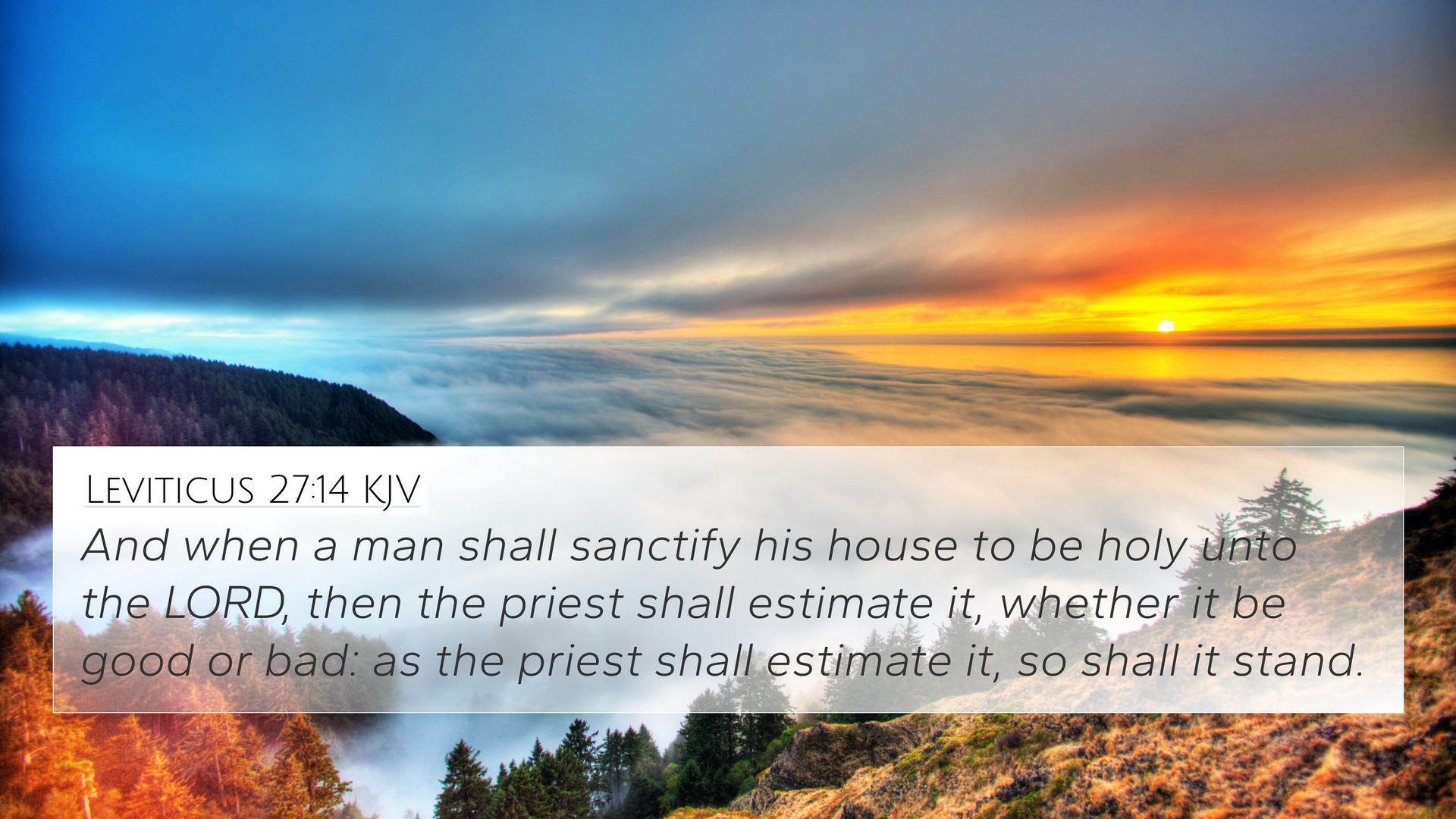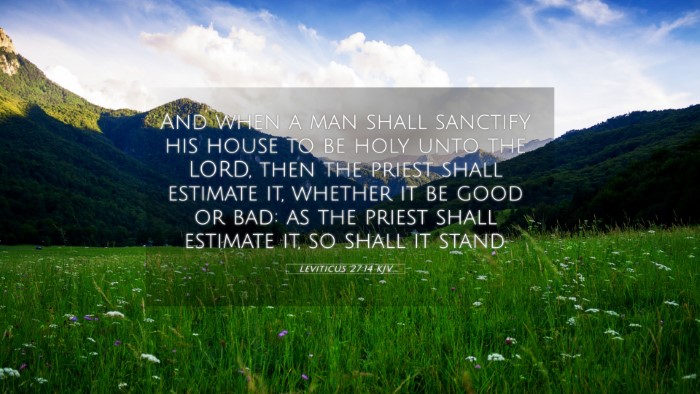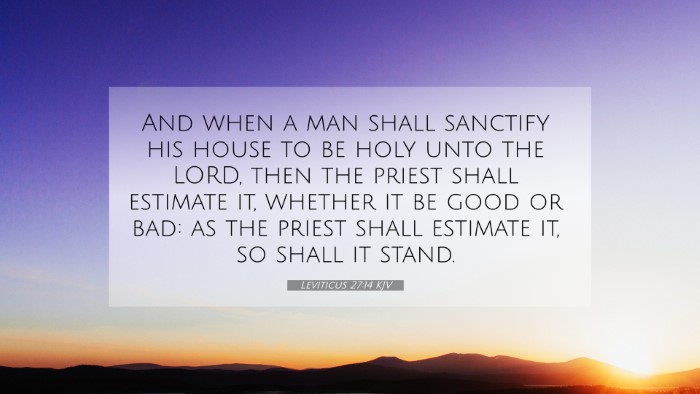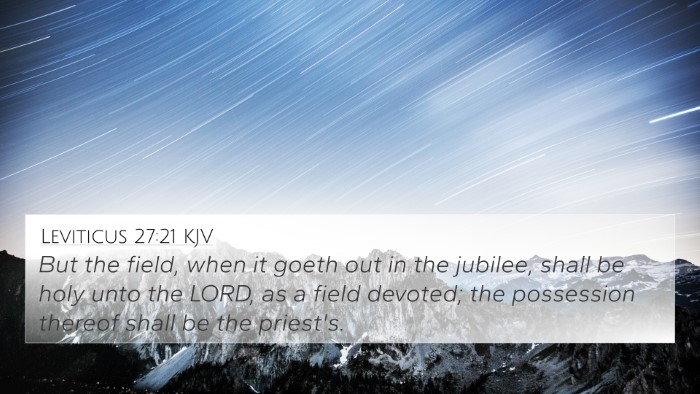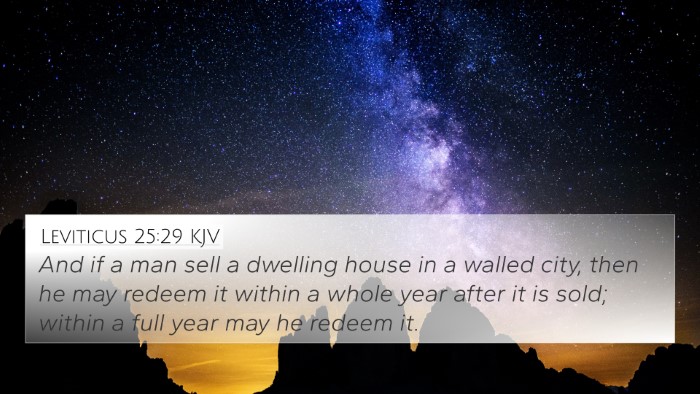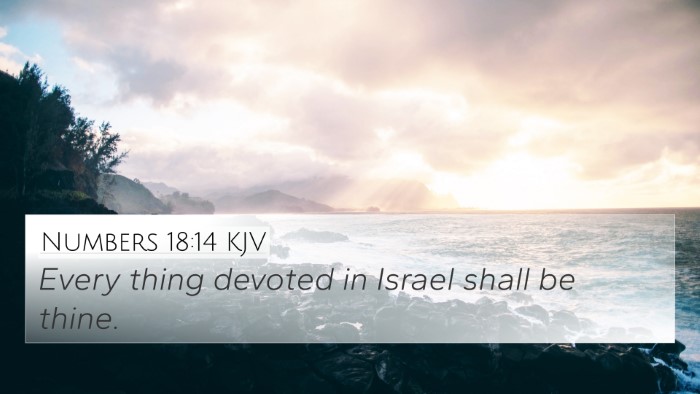Understanding Leviticus 27:14
Leviticus 27:14 states:
"And when a man shall sanctify his house to be holy unto the LORD, then the priest shall estimate it, whether it be good or bad: as the priest shall estimate it, so shall it stand."
This verse resides within the context of the laws concerning dedicating property to the Lord. It emphasizes the importance of valuing one's possessions and offerings in a sacred manner. The insight gathered from public domain commentaries such as those by Matthew Henry, Albert Barnes, and Adam Clarke helps to unravel the deeper meanings of this scripture.
Key Themes and Interpretations
-
Sanctification of Property:
The act of dedicating a house implies that the individual recognizes their property as belonging to God. This reflects a relationship of accountability and stewardship.
-
The Role of the Priest:
Priests were tasked with assessing the value of property that was sanctified, showing a structured approach to spiritual accountability. The priest's judgment in valuation underscored the significance of religious leadership in community affairs.
-
Value Assessment:
The assessment of whether the property is "good or bad" speaks to broader spiritual principles in evaluating one's offerings unto God. This mirrors issues of authenticity and integrity in worship and giving.
-
Community and Individual Responsibility:
This verse encapsulates the balance between community authority (represented by the priest) and individual intentions (the person's choice to sanctify their house).
Cross-References Related to Leviticus 27:14
- Exodus 30:13-16 - Discusses the half-shekel offering that contributes to the service of the tabernacle.
- Numbers 18:14 - All devoted things in Israel belong to the priests.
- Deuteronomy 23:18 - It addresses the offerings of sacred things and the importance of holiness in worship.
- Matthew 5:23-24 - The New Testament echoes similar themes of gifting and reconciliation before the altar.
- 1 Chronicles 29:14 - Acknowledges that all that is given comes from God, reflecting humility in offering.
- Romans 12:1 - Encourages believers to present their bodies as living sacrifices to God, a spiritual act of worship.
- 2 Corinthians 9:7 - Speaks to the importance of giving cheerfully, aligning with the idea of valuing offerings.
Comparative Analysis and Practical Applications
In understanding Leviticus 27:14, a comparative Bible verse analysis reveals profound thematic connections:
-
Identifying connections between the Old and New Testament:
While Leviticus focuses on the Law, New Testament teachings expand on the heart behind offerings and sanctification, demonstrating continuity in God's expectations.
-
Bible verses that relate to each other:
When comparing this verse with Romans 12:1, both emphasize the importance of dedicating oneself and possessions to God.
-
Cross-referencing Biblical texts:
Utilizing a Bible cross-reference guide can enhance understanding by linking Leviticus 27:14 with similar themes in other passages concerning offerings and holy stewardship.
Tools for Bible Cross-Referencing
Employ specific tools for Bible cross-referencing to deepen the study of this verse. These can include:
- Bible concordance to locate terms and related verses.
- Cross-reference Bible study materials to explore diverse scriptural themes.
- Comprehensive Bible cross-reference systems to streamline study methodologies.
Final Thoughts
Leviticus 27:14 prompts us to reflect on our relationship with God in the context of our possessions and offerings. By employing various methods of scriptural cross-referencing, one can uncover rich insights that reveal the deep interconnection between biblical texts and themes. This approach not only enriches individual study but also facilitates a broader understanding of God's expectations throughout Scripture.
